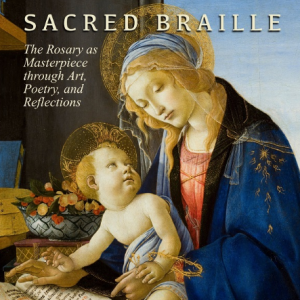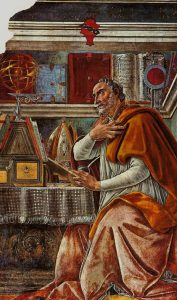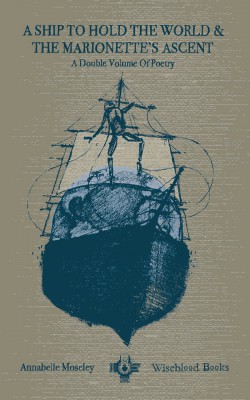A Library for Augustine
This coming Monday, August 28th, is the feast day of St. Augustine. I am celebrating it a few days early, in order to bring attention to a worthy cause. Today’s art by Sandro Botticelli depicts Augustine sitting among books and treasures in a library-like setting. Today’s music is Sam Rocha’s “Late to Love,” inspired by Augustine’s Confessions and his famous words, “Late have I loved you, beauty so ancient and so new!”
This music with elements of jazz, soul, and folk, was released by Wiseblood Records, part of Wiseblood Books. Wiseblood Books is the publisher of my 2014 double volume: A Ship to Hold the world and The Marionette’s Ascent. Wiseblood is having a fundraiser to support “beauty so ancient and so new,” books that are classics-in-the-making for our times.
What better way to honor St. Augustine, the great bishop of Hippo and doctor of the Church, author of such classics as “The Confessions” and “City of God” than with a donation to Wiseblood Books? Wiseblood Books is a unique press of great integrity that in the words of managing editor Angela Cybulski is “reclaiming the culture from every element of secular relativism” through great literature and the promotion of authentic beauty. After all, St. Augustine’s feast is this coming Monday. It’s not too late to love the ancient and new beauty offered by Wiseblood and to create a new library of classics inspired by such greats as Augustine.


